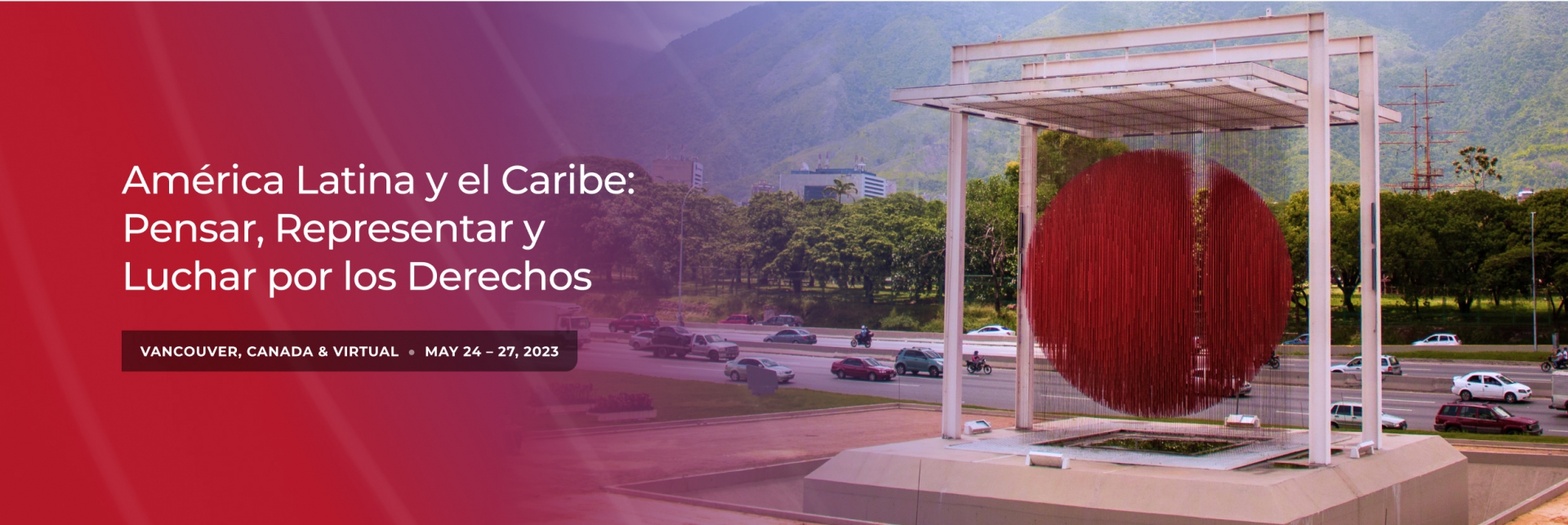About LASA2023
América Latina y el Caribe: Pensar, Representar y Luchar por los Derechos
In Latin America and the Caribbean, the discussion about democracy has been generated in spheres of knowledge that are distanced by geographical location and/or by theoretical/methodological perspectives, including ideological positions. On one hand, the analysis has centered on political institutions and their performance, with an emphasis on electoral democracy. On the other, critical thinking has focused on denouncing the deficits of the liberal representative system: the persistent social inequality, racial hierarchy, asymmetrical international relations and/or the colonial epistemological legacy. Problems like human displacement, corruption, violence, and populism tend to be subsumed in ideological positions.
The world has changed quickly due to the technological revolution, the multiplication of global powers and interests, China’s ascent as a power, and deepening inequalities. The conceptual, methodological, and institutional frameworks that have guided us for decades show limitations, preventing us from fully understanding what is happening and preparing responses. The democratic optimism of the last quarter of the 20th Century has faded, social and economic achievements have regressed, the expansion of recognition and respect toward minority and vulnerable populations is far from being realized.
It is imperative to revise these frameworks and reformulate them, giving centrality to people and their rights. The Universal Declaration of Human Rights allowed for great global progress. The world would be worse without its recognition. However, we cannot ignore the fact that in impoverished zones, far from the geo-human spaces positively affected by globalization, the constitutionalization of rights does little to solve every-day problems, or to effectively defend them. Deprived of such rights, millions of people have seen the need to migrate, sometimes exposing themselves to situations of extreme vulnerability. The murder of defenders of human rights, femicide, structural violence, poverty, and abuse the migrants experience, the destruction of the environment, are particularly harsh phenomena in the region, and require our attention.
This is the crossroads of knowledge production in the region: How to preserve rights when the institutions do not guaranty them? How to enforce them in contexts of increased inequality? If the nation-state as we know it cannot grapple with these and other problems, what are the alternatives? And what is the capacity of Latin America and the Caribbean to intervene in a global context in which the region seems increasingly less relevant?
Thinking, representing, and fighting for rights also involves thinking about the rights of nature, and requires us to address these questions from an academia open to an interdisciplinary approach, and the presence of other knowledge and other voices. It involves the passion to understand multitudes, social movements, and actors of civil society, who in addition to parties and governments, represent and fight for those rights. A plural academia, which confronts the north-south relationship, which overcomes divided approaches, incorporating contributions from activism without refusing the autonomy necessary to exercise critical thinking and the coexistence of dissident voices. The fight for rights is intrinsically linked to the fight for a more participative democracy, solidarity, and social justice. From academia, we must actively contribute to make this possible.

